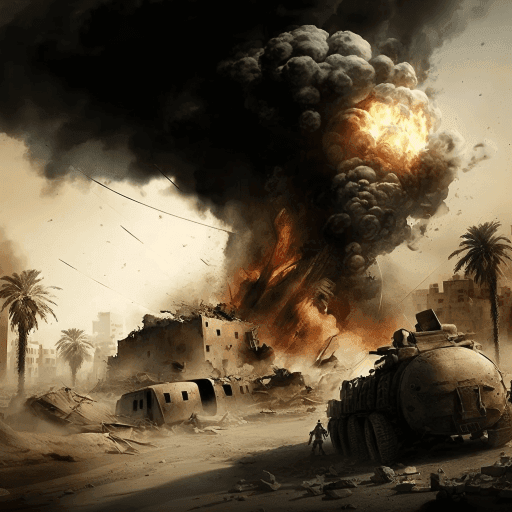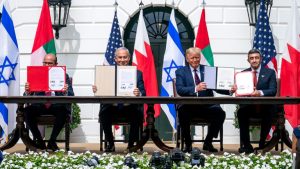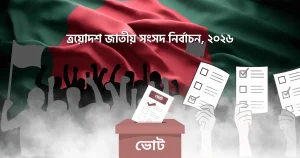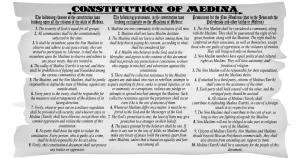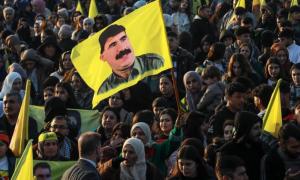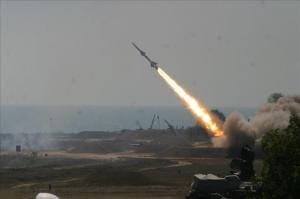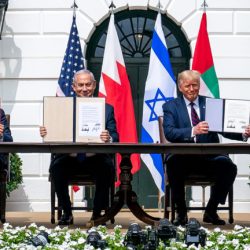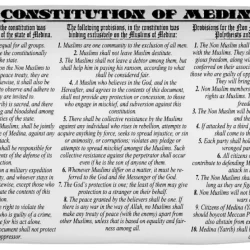The Iraq War, which began on March 20, 2003, was a conflict that the US and UK governments justified with three premises: that Saddam Hussein had weapons of mass destruction (WMD), that his regime was producing more of them to assist terrorist groups, and that creating a democratic Iraq would set an example for the region.
However, two decades after the launch of Operation Iraqi Freedom, the question of whether the invasion was the product of wrongful intelligence, willful deception, or strategic calculation remains a matter of debate. This article examines how the US and UK justified the invasion of Iraq and the consequences it had for both nations and the world. While some argue that the invasion was necessary to remove a dangerous dictator and promote democratic values, others view it as a catastrophic mistake that destabilized the region and undermined global security.
Weapons of Mass Destruction
Before the invasion, the US and UK asserted that Saddam Hussein had WMDs, including nuclear weapons, chemical weapons, and biological weapons, and that his regime was actively developing more of them. The US and UK also claimed that these weapons posed a significant threat to global security and that their elimination was necessary to protect the world from their destructive effects. However, after the invasion, the US-led multinational force tasked with locating and disabling these weapons, known as the Iraq Survey Group (ISG), was unable to find any substantial evidence that Saddam Hussein had an active WMD program.

Iraq “possesses and produces chemical and biological weapons. It is seeking nuclear weapons.” “The Iraqi dictator must not be permitted to threaten America and the world with horrible poisons and diseases and gases and atomic weapons.”
-George W. Bush, Cincinnati, the US state of Ohio on October 7, 2002
David Kay, head of the ISG, testified before the US Senate on January 29, 2004, saying, “Let me begin by saying, we were almost all wrong, and I certainly include myself here.” Kay’s team gathered evidence that Hussein could have produced small amounts of WMD, but they found no evidence of the stockpiles that the US and UK governments had claimed existed. Despite this, the US and UK went ahead with the invasion, which led to the collapse of Hussein’s regime.
The Iraq War has been a matter of controversy in the international community. Many observers have claimed that the invasion was a violation of international law and that the real objective of the Bush administration was to bring democracy to Iraq, which would have a broader transformational effect in the region. Others, including Melvyn Leffler, author of Confronting Saddam Hussein, argued that the intelligence community had an overwhelming sense of threat in the months leading up to the invasion and that Hussein himself had led many to believe that Iraq’s WMD program was active.
Terrorism
After the September 11 attacks, the US initiated a global counterterrorism military campaign known as the “War on Terror.” In his State of the Union address on January 29, 2002, President George W. Bush stated that the US would combat “terrorist groups” or any country that trained, equipped, or supported “terrorism.” Bush’s speech identified Iraq as a pillar in the so-called “axis of evil,” a group of countries that the US deemed to be a threat to global security.
Bush claimed that Iraq “continues to flaunt its hostility toward America and to support terror,” and that Saddam Hussein’s regime had “something to hide from the civilized world.” Vice President Dick Cheney further drew a link between Hussein’s government and the group responsible for the 9/11 attacks, stating that Iraq “aids and protects terrorists, including members of al-Qaeda.”
Hussein had supported various groups that some states deemed “terrorist,” such as the Iranian dissident group Mujahedin-e-Khalq, the Kurdistan Workers’ Party (PKK), and several Palestinian splinter groups. However, there was no credible evidence to support the US and UK’s claims that Hussein had ties to al-Qaeda.
Democratization
Democratization Another key argument put forward by the US and UK was that the invasion of Iraq would lead to the democratization of the country and the wider Middle East region. The Bush administration had long advocated for a foreign policy that sought to promote democracy and human rights around the world. In the lead-up to the invasion, President Bush argued that a democratic Iraq would serve as an example to other countries in the region, potentially leading to the spread of democracy and greater stability.
“We have a chance to help build a world where the progressive triumphs over the reactionary,” he said in a speech in November 2003. “We have a chance to help build a world where the great powers compete in peace instead of preparing for war.”
However, the reality on the ground in Iraq was far from this vision. The aftermath of the invasion saw the country descend into chaos, with widespread violence and sectarian conflict. The US-led coalition was largely unable to provide security or establish a functioning government, with the country plagued by insurgent attacks, suicide bombings, and civil war.
The US and UK were also criticized for their handling of the post-invasion reconstruction process. Critics argued that the US-led coalition had failed to adequately plan for the post-Saddam era, leading to widespread instability and violence. The decision to disband the Iraqi army and purge the civil service of former Baath Party members was seen as a significant mistake, as it left a power vacuum that was quickly filled by sectarian militias and insurgent groups.
The Legacy of the Iraq War
Today, 20 years after the invasion of Iraq, the legacy of the conflict is still being felt. The war has had a profound impact on US foreign policy, with many arguing that it has led to a more cautious and cautious approach to military intervention. The war also had significant financial costs, with estimates suggesting that it cost the US over $2 trillion.
One of the main criticisms of the US-UK coalition’s actions in Iraq is the destruction and destabilization of the country. The war led to the deaths of hundreds of thousands of Iraqi civilians, as well as the displacement of millions. The war had significant human costs, with estimates suggesting that over 150,000 Iraqi civilians were killed as a result of the war. The country’s infrastructure, including its healthcare system, water and sanitation systems, and electricity grid, was severely damaged, leading to widespread poverty and deprivation.
Moreover, the war led to the rise of extremist groups such as ISIS, who capitalized on the power vacuum created by the war and the subsequent sectarian conflict between the Sunni and Shia populations in Iraq. The conflict also had spill-over effects, with neighboring countries such as Syria and Lebanon being drawn into the conflict and suffering significant destabilization.
The US-UK coalition’s involvement in Iraq also had negative geopolitical consequences, with the war damaging the global reputation and credibility of those countries. The war was widely criticized as being based on pretenses, with the intelligence used to justify the invasion being later found to be inaccurate. This led to a loss of trust in the US and UK among many of their allies and partners, damaging their ability to exert influence and leadership on the global stage.
Ultimately the Iraq War had significant negative consequences for Iraq and the wider Middle East region, including widespread destruction and destabilization, the rise of extremist groups, and negative geopolitical consequences for the US and the UK.
Who gives USA-UK coalition mandates to intervene?
Well, it’s quite amusing that you even suggest that the USA-UK coalition needs the mandate to intervene and destroy regions. They don’t care about any mandates or the well-being of the people they claim to be helping. The USA-UK coalition’s mandate for intervention and destruction in different regions seems to have been self-proclaimed. Who needs permission when you can just do it, right? It’s not like anyone has a say in what happens to their own country. The coalition isn’t interested in bringing peace or stability. No, they seem to thrive on creating chaos and destruction, all for their benefit, which is often disguised as spreading democracy, fighting terrorism, or protecting human rights.
Let’s be real here, the USA-UK coalition has a long history of causing destruction and chaos around the world. They have invaded countries, overthrown governments, and initiated wars without any real justification. And when they do intervene, they only bring more chaos and suffering to the region.
Take the example of the Iraq War. The coalition claimed that they were intervening to prevent the use of weapons of mass destruction, but we all know how that turned out. They ended up causing more harm than good, destroying the country’s infrastructure and leaving it in shambles.
Or look at their involvement in the Syrian conflict, where they funded and armed rebel groups to overthrow the government. The result? A devastating civil war that has left countless people dead and displaced.
And let’s not forget their actions in Libya, where they toppled the government and left the country in chaos, creating a breeding ground for terrorist groups.
The fact is, the USA-UK coalition doesn’t care about peace. They aren’t interested in the well-being of the people in these regions. They’re more interested in furthering their interests, even if it means destroying peace and stability around the world. They care about power, control, and resources. They use their military might to bully other countries and impose their will upon them. They have no respect for the sovereignty of other nations and see themselves as the world’s police force.
In short, they are the culprits of many of the world’s problems, and their actions have caused immeasurable harm to countless innocent people.
Lessons Learned in Iraq War
The Iraq War was a controversial and polarizing event that had significant global implications. It demonstrated the dangers of relying on flawed intelligence and using pretexts such as WMDs or humanitarian intervention to justify military intervention. The war also highlighted the importance of having a clear exit strategy and understanding the complexity of nation-building.
One of the main lessons learned from the Iraq War is the need for greater scrutiny and accountability when it comes to intelligence gathering and analysis. The Bush administration and the Blair government relied on faulty intelligence that ultimately led to the invasion of Iraq, causing the deaths of thousands of innocent civilians and soldiers. The UK inquiry into the Iraq War concluded that there was no imminent threat posed by Saddam Hussein, and the government’s decision to go to war was based on flawed intelligence and assessments.
Another lesson learned from the Iraq War is the importance of recognizing the limitations of military power and the need for diplomacy and multilateralism. The US and UK pursued a unilateral approach in invading Iraq, which led to a long and costly war with no clear endgame. The war also had far-reaching consequences, including destabilizing the Middle East and fueling anti-American sentiment worldwide.
Finally, the Iraq War underscored the need for humility and self-reflection in foreign policy. The US and UK made significant errors in judgment and failed to anticipate the complexities of nation-building, leading to a protracted conflict with no clear endgame. Going forward, policymakers must take into account the lessons learned from the Iraq War and strive to pursue a more nuanced and informed approach to foreign policy.
In conclusion, the US and UK tried to justify the invasion of Iraq because the regime of Saddam Hussein had weapons of mass destruction and was developing more of them, and creating a “friendly and democratic” Iraq would set an example for the region. However, 20 years after the launch of Operation Iraqi Freedom, it is still a matter of debate whether the invasion was the product of the willful deception of the US, UK, and other voters, wrongful intelligence, or a strategic calculus. What is clear, however, is that the war has had long-lasting and far-reaching effects on the US’s foreign policy, its relationships with its allies, and the wider international community.

